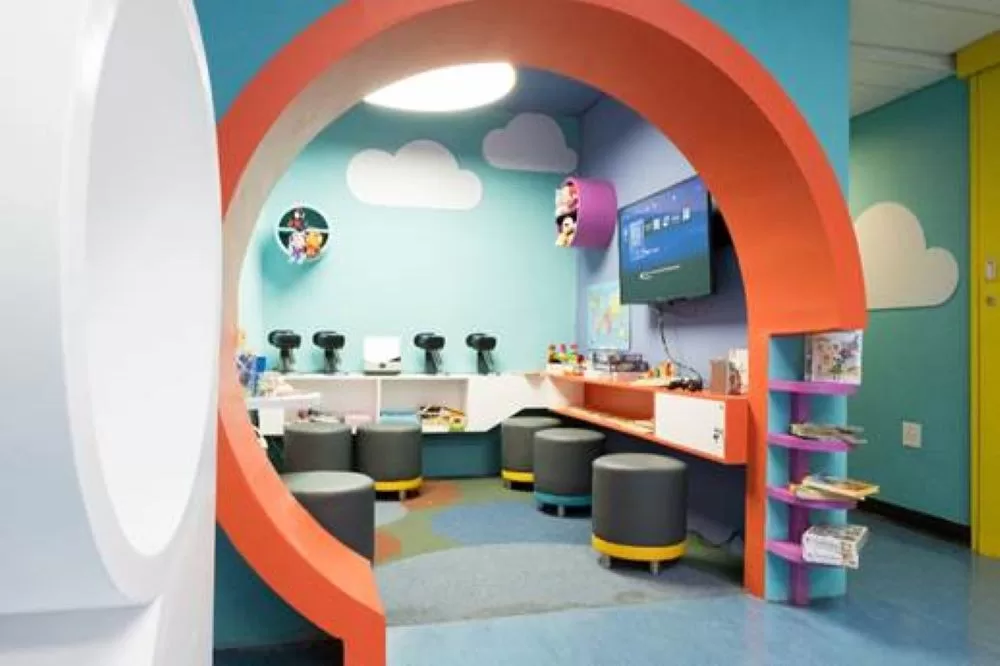Reach For A Dream expands Dream Room initiative with new nationwide launches: A healing space for children and communities

The Reach For A Dream Foundation, dedicated to alleviating the challenges faced by children with life-threatening illnesses and their families, is thrilled to announce the expansion of its Dream Room initiative with eight new Dream Rooms set to launch in hospitals across South Africa by the end of 2024.
These new additions will be located at Tygerberg Hospital (sponsored by Medtronic), St. Joseph’s Intermediate Paediatric Care (sponsored by Cell C), two rooms at Charlotte Maxeke Johannesburg Academic Hospital (sponsored by DHL and Emperors Palace), Rahima Moosa Mother and Child Hospital (sponsored by Oregon Medical Group), Steve Biko Academic Hospital (sponsored by FEM), Pholosong Hospital (sponsored by Disney), and Port Elizabeth Provincial Hospital (sponsored by Truworths).
With these launches, Reach For A Dream will have established 46 Dream Rooms nationwide, with the goal of opening even more in the future. These Dream Rooms create a unique therapeutic environment for children enduring extended hospital stays, offering them a much-needed escape from the clinical setting and the opportunity to experience the joy of being a child.
Creating healing spaces for children
Dream Rooms provide a sanctuary for children battling life-threatening illnesses, designed to spark joy, creativity, and a sense of wonder. These spaces feature a wide range of activities, including arts and crafts, Lego building and educational games. For children undergoing long and often stressful treatments, these rooms offer a much-needed respite that not only entertains but also supports their emotional and developmental well-being.
Dr Thurandie Naiker, Senior Specialist Radiation Oncologist at Groote Schuur Hospital, highlights the impact of the Dream Rooms: “The Reach For A Dream, Dream Room at our hospital has had numerous positive effects on the physical, emotional, and psychological well-being of the children and their families. It reduces anxiety and stress, significantly improving the mood of our young patients. The bright colours and playful décor offer a warm, welcoming space for families to spend time together, strengthening their bonds. The child-friendly environment also makes children more receptive to medical treatments, which is another reason the Dream Rooms work so well.”
Collaboration with sponsors and expanding the initiative
Natalie Lazaris, Head of Fundraising at Reach For A Dream, expressed her gratitude to the partners that have made these rooms possible. “We are thankful to all our sponsors who help make these Dream Rooms come to life. These spaces are vital for children, and we couldn’t do it without them. We are also always looking to open more Dream Rooms around the country, get in touch with Reach For A Dream if you’d like to know more or help make an impact.”
The Dream Rooms provide not only joy and entertainment but also play a crucial role in helping children meet developmental milestones that might otherwise be delayed due to extended hospital stays. Each room is thoughtfully designed to provide a sense of normality, safety, and creativity in what can often be an intimidating and clinical environment.
Collaboration with medical staff and volunteers
The success of the Dream Rooms is also largely due to the collaborative efforts of medical staff, nurses, and volunteers, whose involvement ensures that these spaces are accessible, welcoming, and safe for children. This teamwork allows the Dream Rooms to function as a core element of paediatric care at many hospitals, fostering a positive environment for children as they navigate their treatments.
Empowering youth and communities through Work Readiness Programmes
Beyond creating healing spaces for children, Reach For A Dream is committed to empowering local communities by offering on-the-job training and work readiness programmes. Through the Dream Room initiative, young professionals are provided with invaluable experience, with 50% of interns holding degrees or diplomas in psychology, 30% having experience in early childhood development—many as teaching assistants—and 20% being recent school leavers eager to pursue a career in early childhood development.
These interns undergo a 12-month Early Childhood Development learning programme, where they receive practical, on-the-job training. This initiative not only provides children with life-changing experiences but also equips interns with essential skills, preparing them for long-term career success in early childhood education and care.





























